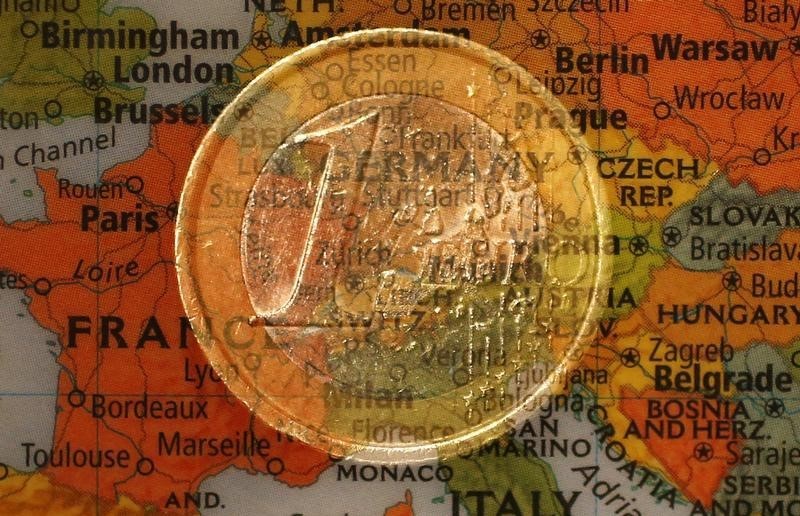Investing.com - The euro trimmed losses against the U.S. dollar on Wednesday, but remained under pressure as concerns over a potential Greek default persisted and as demand for the greenback remained broadly supported by Tuesday's upbeat U.S. economic data.
EUR/USD eased off 1.1063, the pair's lowest since April 29, to hit 1.1121 during European afternoon trade, still down 0.26%.
The pair was likely to find support at 1.0958, the low of April 28 and resistance at 1.1277, the high of May 12.
The single currency weakened as Athens was still scrambling to reach an agreement with its international lenders over economic reforms they say must be implemented before the final €7.2 billion tranche of the country's €240 billion bailout is released.
Greece is due to make a €305 million payment to the International Monetary Fund on June 5, but will default if a deal is not reached by then.
The euro was also hit after senior European Central Bank policymaker Benoit Coeure said on Tuesday that the central bank is planning to speed up the pace of its bond-buying stimulus program before the summer in order to avoid the "notably lower market liquidity" in late July and August.
Meanwhile, demand for the greenback remained broadly supported after the U.S. Commerce Department said that the number of building permits issued last month increased by 10.1% last month to 1.143 million units from March's total of 1.038 million.
The report also showed that U.S. housing starts soared by 20.2% in April to hit 1.135 million units from March's total of 944,000 units, easily surpassing expectations for an increase of 9.9%.
Investors were eyeing the minutes of the Fed's April meeting, due later in the day, for fresh indications on the timing of an initial rate hike.
The euro was also lower against the pound, with EUR/GBP shedding 0.27% to 0.7164.
Earlier Wednesday, the minutes of the Bank of England's May meeting showed that the Monetary Policy Committee was unanimous in voting to keep rates on hold and its quantitative-easing program unchanged.
The minutes reiterated the banks view that record low inflation rates are not likely to continue for long and that consumer prices will pick up notably towards the end of the year.
